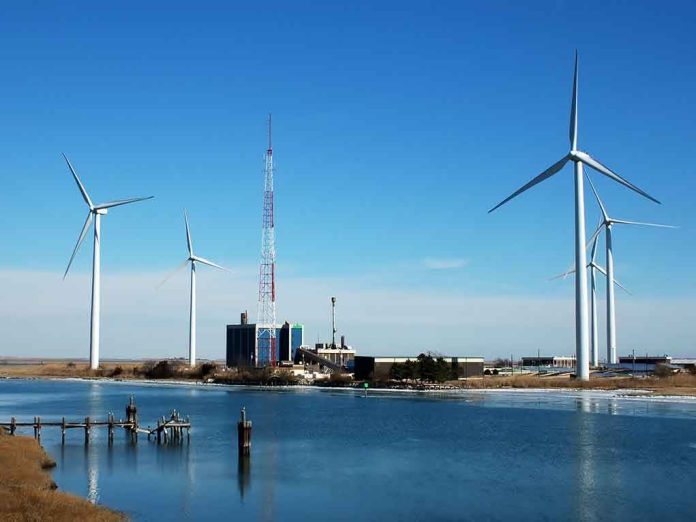
Japan’s green energy setbacks highlight the pitfalls of the climate agenda, serving as a stark warning for the United States under President Trump’s leadership.
Story Highlights
- Mitsubishi Corporation withdraws from offshore wind projects in Japan.
- The failures underscore the risks of aggressive green energy policies.
- Japan’s struggles serve as a cautionary tale for the US.
- Conservative values emphasize practical energy solutions over unproven agendas.
Mitsubishi’s Withdrawal from Wind Projects
In August 2025, reports surfaced that Mitsubishi Corporation was preparing to withdraw from three offshore wind projects located off the coasts of Chiba and Akita prefectures in Japan. This decision marks a significant retreat from previous commitments to renewable energy initiatives. Mitsubishi’s move raises serious questions about the viability and sustainability of large-scale wind energy projects, particularly in challenging geographic locations.
The decision to step back from these projects highlights the financial and logistical challenges associated with ambitious green energy plans. The projects initially promised to boost Japan’s renewable energy output significantly. However, mounting costs and technical hurdles have forced Mitsubishi to reconsider its involvement, illustrating the precarious nature of such investments.
Lessons for the United States
The situation in Japan serves as a cautionary tale for the United States, which is currently navigating its energy policies under President Trump. The conservative leadership has been critical of aggressive climate agendas that prioritize renewable sources without adequately addressing their feasibility and economic impact. The Japanese example underscores the importance of evaluating the practicality of energy solutions before making large-scale commitments.
This case serves as a reminder that energy policies should balance innovation with practicality, ensuring that investments are not driven solely by political agendas but by sound economic reasoning. The conservative perspective champions a diversified energy portfolio, including traditional energy sources, to safeguard the nation’s energy independence and economic stability.
Conservative Values and Energy Policy
Conservative values emphasize the need for energy policies that uphold national interests, economic growth, and individual liberty. The setbacks experienced by Japan in their green energy initiatives echo concerns about over-reliance on unproven technologies. Advocates for conservative policies argue for a pragmatic approach that incorporates traditional energy sources while exploring renewable options in a measured manner.
As the United States charts its energy future, lessons from Japan’s experience should guide policymakers in crafting strategies that prioritize reliability, affordability, and sustainability. This approach aligns with the conservative commitment to practical governance and the protection of American values.


